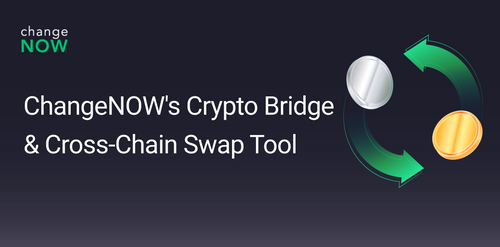Weekly Wrap: Brazil Passes Crypto Payments into Law
Binance.US to Purchase Voyager’s Assets for Over $1B

Binance.US has agreed to purchase assets belonging to failed crypto broker Voyager Digital for over $1B. Voyager unveiled news of the acquisition via an official publication on Monday. According to the release, Binance.US made the best proposition to acquire the bankrupt platform’s holdings.
Voyager stated in its release that the Binance.US bid had emerged as the best path for its customers. The broker claimed to have carefully considered bids from other key industry players such as CrossTower, Wave Financial, and INX. However, Voyager aims to maximize the value ex-customers and creditors will receive while simultaneously speeding up the refund process.
The Binance bid reportedly “sets a clear path forward for Voyager customer funds to be unlocked as soon as possible.” Binance will pay a total of $1.022B which covers the fair market value of Voyager’s crypto portfolio, worth about $1.002B at writing. The additional $20 million is to account for a possible increase in the future.
Per the release, Voyager’s claims against Three Arrows Capital will remain with the bankruptcy estate. The announcement noted that the estate's creditors will receive any future proceeds from the 3AC claims and any unreleased claims.
Additionally, Binance and Voyager are to finalize the agreement before April 18 next year. For now, the exchange will make a $10M good faith deposit and will also refund the Voyager for expenses worth $15M.
Brazil Legalizes Crypto as a Payment Option
On Thursday morning, Brazilian President Jair Bolsonaro signed a bill allowing the country’s residents to transact using cryptocurrency. Brazil now supports digital assets such as Bitcoin and other cryptocurrencies as a legitimate payment method. Under the new policy, Brazil also has a robust regulatory structure for the crypto industry within its borders. Dubbed bill 14.478, the newly approved law was in existence for 7 years in discussion within congress. It finally passed through the Chamber of Deputies and the Senate last month, hitting the President’s table on November 29. Bolsonaro then gave the final go-ahead for the bill with zero alterations.
As stated earlier the bill creates a regulatory framework for crypto businesses. Exchange platforms and other intermediaries in Brazil are now required to apply for a "virtual service provider" license. The bill also spells out penalties for crypto-related crimes which include fines and jail time of 4–6 years.
Brazil’s new crypto policy did not reveal which government agencies will have jurisdiction over crypto activities. However, the nation’s Securities and Exchange Commission (CVM) will take charge of crypto assets that can be considered securities.
Paxos Retrieves $20M in PAXG From FTX Hack in November
During the week, Blockchain company Paxos recovered $20M worth of its PAXG tokens which got lost over November’s FTX exploit. Indeed, early last month shortly after its spectacular collapse, failed crypto exchange FTX fell victim to a hack. The attacker carted off crypto assets including gold-backed Paxos Gold which altogether added up to $400M in stolen funds.
When the hack initially occurred, Paxos took swift action and froze 11,184 Paxos Gold tied to 4 Ethereum wallets. The company revealed in an update that they had done this in compliance with instructions from US Federal Law enforcement. Per a Dec 23 tweet from blockchain security firm Peckshield, over a month since the freeze, the 11,184 PAXG tokens have returned to Paxos’ possession.
The Peckshield post stated that the blockchain firm transferred the stolen funds from wallets tagged “FTX Accounts Drainer.” According to Etherscan data Paxos then deposited the tokens in a null address and burned them. Following this, the platform minted the same number of tokens to the treasury wallet and subsequently sent the funds to a fresh address. Notably, before Peckshield revealed that Paxos had moved the tokens, reports made the rounds claiming the hacker was behind the transfers. The tweet of course worked to silence the speculation.
With this move, Paxos has only recovered a minimal percentage of the funds the hacker stole in the exploit. Indeed, the perpetrator’s wallet had contained over $300M in ether from FTX’s reserves in the weeks following the hack. The culprit swapped the majority of these assets for BTC, rendering them unrecoverable.
Ripple May be Introducing Smart Contracts to the XRP Ledger
Matt Hamilton, ex-Principal Developer Advocate at Ripple revealed that some major functionality is coming to the payment firm’s blockchain, XRP ledger. Hamilton shared the news on Thursday, in response to a Twitter user’s statement claiming the network had no utility. The user questioned why any financial institutions would adopt altcoins when they didn’t want Bitcoin.
“I don’t see any use case,” said the tweet.
Hamilton chimed in to note that XRP sees daily use as a tool for international payments, non-fungible tokens (NFTs), and web monetization. However, another user @BrainsyEth pointed out that XRPL does offer support for smart contracts. Hamilton responded again saying that the most necessary functionality was built into the network, however, the network reportedly has smart contracts in the works.



